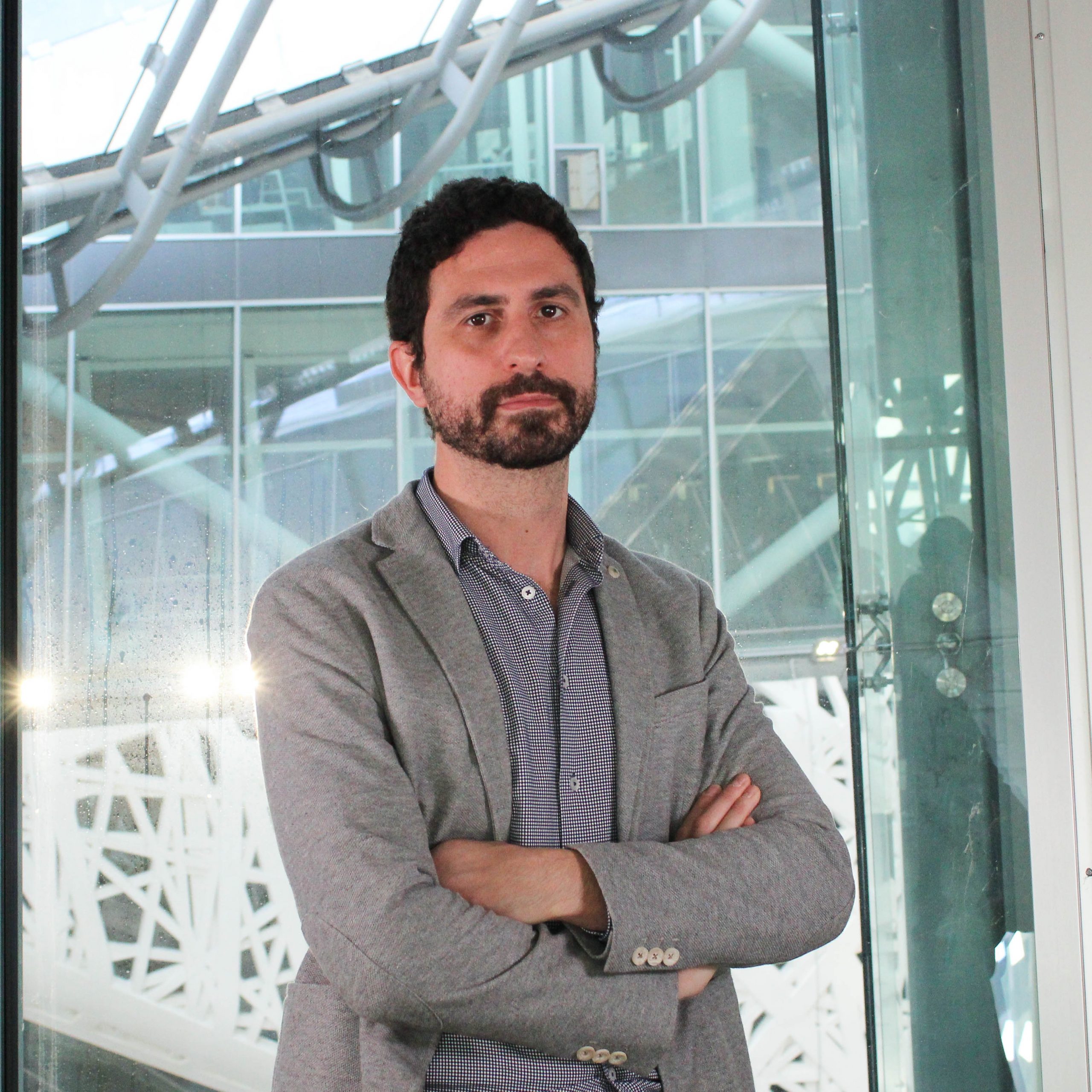
Andrea Sottoriva
- Head of Computational Biology Research Centre, Biologia Computazionale
- Research Group Leader, Sottoriva Group
Andrea Sottoriva è il responsabile del Centro di ricerca di Biologia Computazionale di Human Technopole.
La ricerca di Andrea si focalizza sullo sviluppo di nuovi approcci computazionali per misurare i processi di evoluzione dei tumori nei pazienti, con lo scopo di effettuare previsioni dello sviluppo della malattia e progettare nuove strategie di trattamento che mirano a controllare la resistenza ai farmaci.
Dopo la laurea in informatica presso l’Università di Bologna nel 2006, ha conseguito un master in scienze computazionali presso l’Università di Amsterdam nel 2008. Durante gli studi del master ha, inoltre, svolto attività di ricerca all’Istituto Nazionale di Fisica Nucleare e delle Alte Energie (NIKHEF) dei Paesi Bassi dove ha lavorato all’esperimento del telescopio per neutrini ANTARES.
Nel 2012 ha ottenuto un dottorato di ricerca in biologia computazionale dall’Università di Cambridge, dove ha lavorato presso il centro di ricerca di Cancer Research UK.
Dopo il post-dottorato presso la University of Southern California, ha avviato il suo laboratorio presso l’Institute of Cancer Research di Londra nel 2013, dove nel 2018 è diventato vicedirettore del Center for Evolution and Cancer e poi direttore nel 2020.
È autore di numerosi studi pubblicati su prestigiose riviste scientifiche tra cui Science, Nature, Nature Genetics e Cancer Discovery. Tra i suoi articoli figurano “The co-evolution of the genome and epigenome in colorectal cancer” (Nature, 2022), “Phenotypic plasticity and genetic control in colorectal cancer evolution” (Nature, 2022), “Subclonal reconstruction of tumors by using machine learning and population genetics” (Nature Genetics, 2020), “Detecting repeated cancer evolution from multi-region tumor sequencing data” (Nature Methods, 2018), “Longitudinal liquid biopsy and mathematical modelling of clonal evolution forecast waiting time to treatment failure in a phase II colorectal cancer clinical trial” (Cancer Discovery, 2018), e “Patient-derived organoids model treatment response of metastatic gastrointestinal cancers” (Science, 2018).
Nel 2016 il Cancer Research UK gli ha conferito il prestigioso premio “Future Leaders in Cancer Research”.
Contatti
Segui
Pubblicazioni Selezionate
-
06/2018 - Nature Genetics
Quantification of subclonal selection in cancer from bulk sequencing data
Subclonal architectures are prevalent across cancer types. However, the temporal evolutionary dynamics that produce tumor subclones remain unknown. Here we measure clone dynamics in human cancers by using computational modeling of subclonal selection and theoretical population genetics applied to high-throughput sequencing data. Our method determined the detectable subclonal architecture of tumor samples and simultaneously measured […]
-
05/2018 - Nature Genetics
Quantification of subclonal selection in cancer from bulk sequencing data
Subclonal architectures are prevalent across cancer types. However, the temporal evolutionary dynamics that produce tumor subclones remain unknown. Here we measure clone dynamics in human cancers by using computational modeling of subclonal selection and theoretical population genetics applied to high-throughput sequencing data. Our method determined the detectable subclonal architecture of tumor samples and simultaneously measured […]
-
02/2018 - Science
Patient-derived organoids model treatment response of metastatic gastrointestinal cancers
Patient-derived organoids (PDOs) have recently emerged as robust preclinical models; however, their potential to predict clinical outcomes in patients has remained unclear. We report on a living biobank of PDOs from metastatic, heavily pretreated colorectal and gastroesophageal cancer patients recruited in phase 1/2 clinical trials. Phenotypic and genotypic profiling of PDOs showed a high degree […]
-
01/2016 - Nature Genetics
Identification of neutral tumor evolution across cancer types
Despite extraordinary efforts to profile cancer genomes, interpreting the vast amount of genomic data in the light of cancer evolution remains challenging. Here we demonstrate that neutral tumor evolution results in a power-law distribution of the mutant allele frequencies reported by next-generation sequencing of tumor bulk samples. We find that the neutral power law fits […]